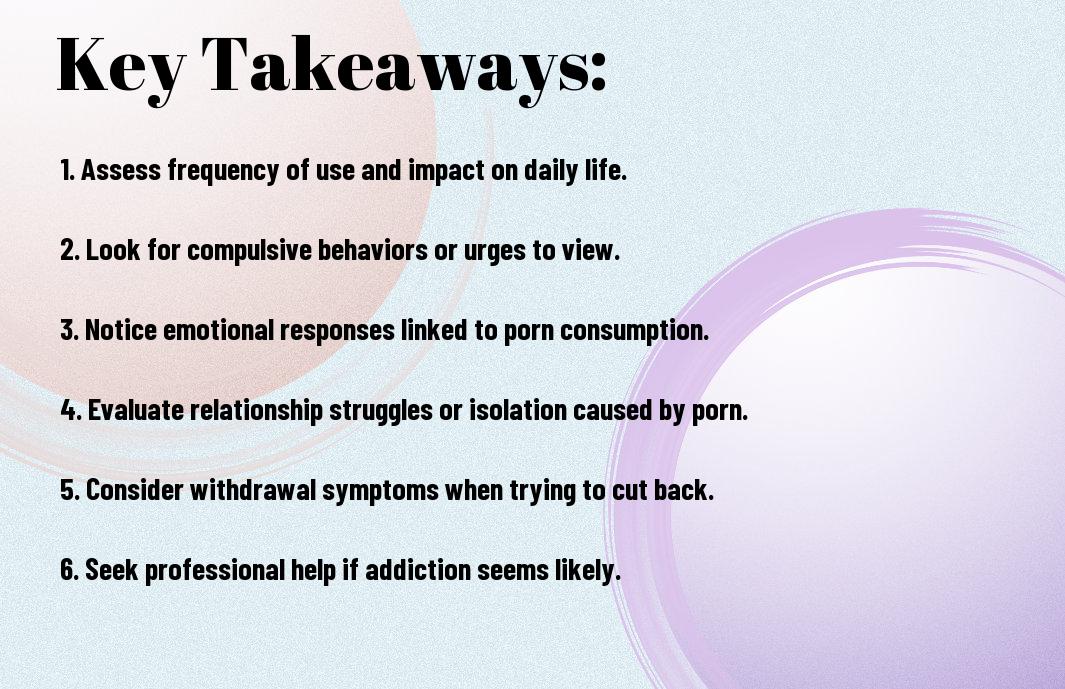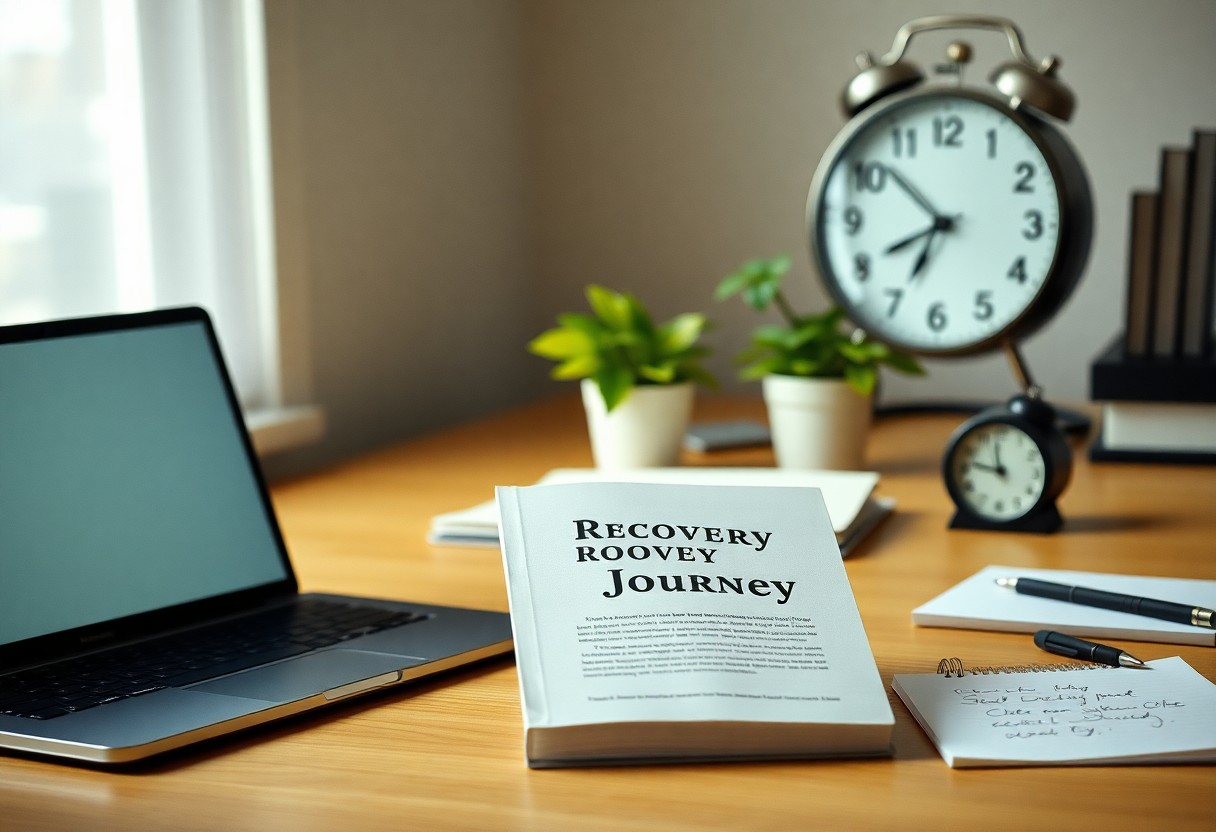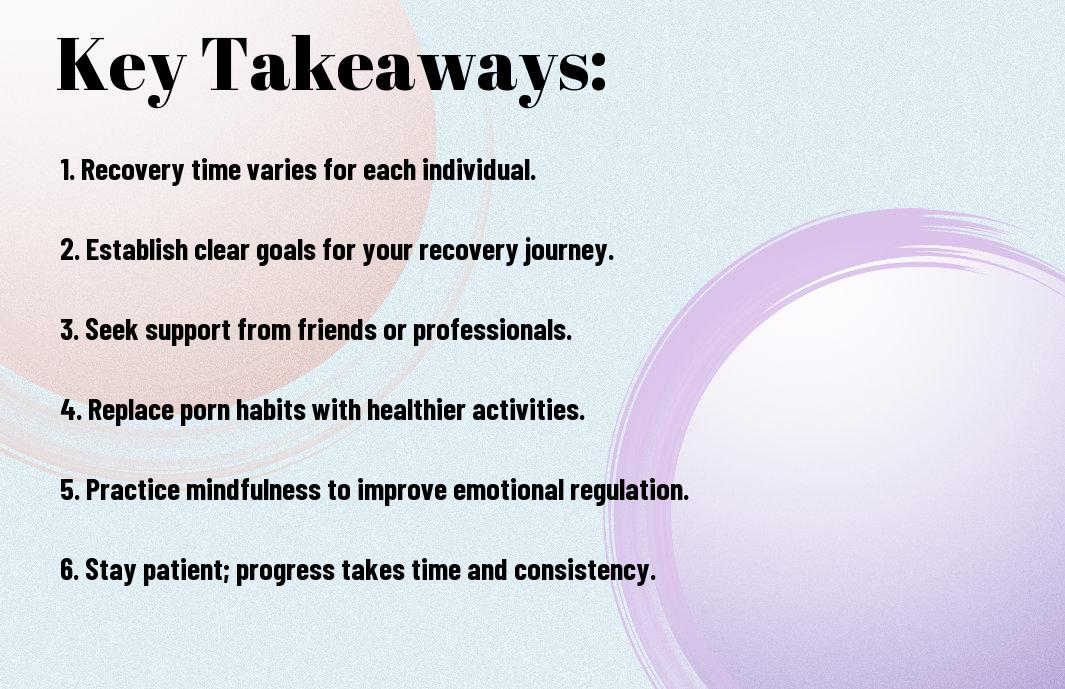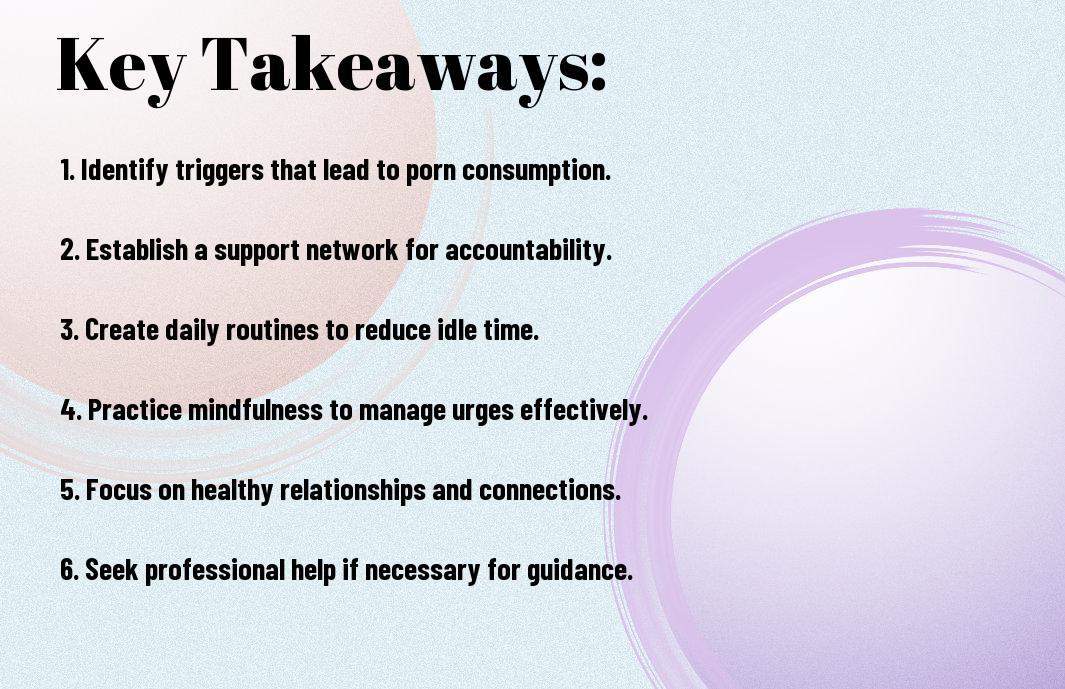Porn use can often blur the lines between casual consumption and a potential addiction, impacting various aspects of your life. Understanding whether your habits fall into addiction is imperative for personal growth and well-being. In this informative guide, you’ll explore seven imperative steps and tips to help you identify if you have a porn addiction and take proactive measures toward a healthier relationship with it. By reflecting on your behaviors and emotions surrounding porn, you can gain clarity and insight into your habits.
Key Takeaways:
- Assess your viewing habits: Monitor the frequency and duration of your porn consumption to identify patterns.
- Evaluate emotional responses: Pay attention to how you feel before and after watching porn, noting any feelings of shame or guilt.
- Consider impact on relationships: Reflect on whether porn use is affecting your personal relationships or sexual experiences.
- Identify triggers: Recognize situations or emotions that lead to the urge to watch porn and learn to address them.
- Create boundaries: Set limits on your porn consumption or consider periods of abstinence to regain control.
- Seek support: If needed, talk to a professional or join support groups to share experiences and strategies.
- Focus on alternatives: Explore healthier activities or hobbies that can replace porn consumption in your routine.


Understanding Porn Addiction
The concept of porn addiction is often misunderstood, yet it can significantly impact your life. You might find that your relationship with porn has matured into something more destructive than you initially perceived. For guidance on overcoming this challenge, check out How to Stop a Porn Addiction: Samarpan’s Practical Guide.
Definition of Porn Addiction
Below, porn addiction is defined as a compulsive behavior characterized by an excessive preoccupation with pornography, often leading to negative consequences in various aspects of your life. This addiction can affect your emotional, relational, and even professional well-being.
Signs and Symptoms
Understanding the signs and symptoms of porn addiction is imperative to recognizing your situation. You may frequently find yourself engaging in pornographic activities despite efforts to cut back, or you may experience feelings of guilt and shame after indulging.
For instance, you might notice a persistent urge to view porn, even when it interferes with your daily responsibilities or relationships. This behavior may lead to isolation, where you choose pornography over social interactions or intimate connections. As the addiction progresses, you could find the material becomes less satisfying, driving you to seek even more extreme content to achieve the same pleasure, further exacerbating the cycle of dependency.

Self-Assessment
Even if you enjoy your leisure time, excessive engagement with porn can lead you to question your habits. A self-assessment allows you to evaluate your relationship with pornography objectively. Take time to reflect on how often you indulge, the emotions surrounding it, and if it affects your daily functioning or personal relationships. Being honest with yourself is the first step towards understanding any potential addiction.
Reflecting on Your Habits
For a comprehensive self-assessment, start by documenting your viewing habits. Note how frequently you watch porn, what type of content you prefer, and how it makes you feel. Are you turning to it to relieve stress or boredom? Are your views becoming more extreme? This reflection is necessary to identify any patterns that might indicate a problem.
Identifying Triggers
After you reflect on your habits, it’s time to pinpoint the triggers that lead you to seek out pornography. Triggers could be emotional, such as feelings of loneliness or anxiety, or situational, like having unsupervised internet access. Recognizing these elements can be foundational in understanding your behavior and developing strategies to mitigate them.
This step involves being aware of what drives you toward pornographic content. Pay attention to specific situations, times of day, or emotions that precede your viewing. For example, do you tend to watch porn more often when you’re feeling bored or stressed? Keeping a journal can be an effective way to track and analyze these triggers over time, which will assist you in creating healthier coping mechanisms.
Evaluating Impact
Keep a close eye on how your porn consumption affects various aspects of your life. Consider your daily routines, emotional stability, and overall well-being. For deeper insights, refer to What Does Porn Addiction Look Like? to better understand potential symptoms and recognize the signs that might indicate an addiction.
Effects on Relationships
After noticing a change in your interactions, you may realize that porn consumption can create barriers in your relationships. Scenarios may include reduced intimacy, emotional disconnection, or feelings of inadequacy in partners. This impact can hinder your ability to connect meaningfully with others, often leading to misunderstandings and conflicts.
Consequences on Mental Health
Beside the effects on relationships, your mental health can be significantly affected by porn addiction. Regular consumption may lead to feelings of guilt, anxiety, or depression, as it often creates unrealistic expectations about sex and intimacy. These emotional struggles can further perpetuate addictive behaviors, resulting in a continuous cycle that is hard to break.
In addition, excessive porn use can distort your perception of healthy sexuality, causing you to become desensitized to real-life experiences. This distortion can result in diminished sexual pleasure and an unhealthy approach to relationships, leading to further isolation and psychological distress. Addressing these mental health concerns is vital for regaining control over your life and fostering healthier connections.
Seeking Help
Once again, recognizing that you may need help with your porn consumption is a pivotal point in your journey. Seeking assistance can lead to a healthier relationship with sexuality and improve your overall well-being. Whether it’s professional therapy or support from peers, taking this step is vital in regaining control over your habits and ensuring a fulfilling life.
Professional Therapy Options
Among the various avenues for support, professional therapy presents a structured way to address your porn addiction. Working with a qualified mental health professional can help you uncover underlying issues, develop coping strategies, and set long-term goals for recovery. They often employ techniques like cognitive-behavioral therapy to reshape your thought patterns and behaviors surrounding pornography.
Support Groups and Resources
Between professional therapy sessions, engaging with support groups can provide an invaluable sense of community and understanding. Connecting with others who share similar experiences fosters accountability and motivation in your journey towards recovery.
Due to the often isolating nature of addiction, support groups and resources serve as a lifeline, allowing you to share your struggles and triumphs with others who truly understand. Whether online or in-person, these settings encourage open dialogue and provide a space for individuals to learn from one another’s experiences. Many organizations offer workshops and informative materials that can complement your therapy, making the healing process more comprehensive and relatable.

Developing Coping Strategies
Despite the challenges that come with recognizing a porn addiction, developing effective coping strategies can help you regain control. By identifying healthier outlets for your emotions and stimuli, you can create a structured plan to address feelings and urges associated with your addiction. This proactive approach not only supports your recovery journey but also promotes personal growth as you work towards a balanced and fulfilling life.
Alternative Activities and Hobbies
The best way to shift your focus away from porn is by engaging in alternative activities and hobbies that interest you. Exploring new interests or rediscovering old ones can provide fulfilling distractions, serving as a healthier way to channel your energy. Whether it’s taking up a sport, learning a musical instrument, or entering into a new book series, these pursuits can enrich your life and help diminish cravings.
Mindfulness and Stress Reduction Techniques
After implementing new hobbies, you might find additional benefit in practicing mindfulness and stress reduction techniques to further manage urges. These techniques, such as meditation, deep breathing, or yoga, can help you cultivate present-moment awareness and reduce the anxiety that often drives addictive behaviors.
Plus, incorporating mindfulness and stress reduction techniques into your daily routine can positively impact your mental well-being. These practices encourage you to be aware of your thoughts and feelings without judgment, helping you recognize triggers that lead to pornography use. By regularly engaging in mindfulness, you can develop a greater sense of control over your impulses and improve your overall emotional resilience.
Setting Goals for Recovery
Unlike other challenges, recovering from a porn addiction requires a clear roadmap of where you want to go and how you plan to get there. Setting specific goals provides direction and motivation, allowing you to focus your efforts effectively. By establishing both short-term and long-term objectives, you can create a structured plan that helps you stay committed to your recovery journey.
Short-Term vs Long-Term Goals
Along your recovery journey, it’s important to differentiate between short-term and long-term goals. Short-term goals may include reducing the frequency of consumption or establishing boundaries around media usage, while long-term goals could encompass building healthier relationships or developing new hobbies. Targeting both types allows you to celebrate small wins while keeping an eye on the bigger picture.
Tracking Progress and Adjusting Plans
Around your recovery process, consistently tracking your progress will help you stay accountable and motivated. It’s vital to evaluate your goals periodically and adjust your plans as needed. This reflection helps in identifying what’s working and what isn’t, allowing you to adapt your approach for sustained improvement.
Even minor setbacks can provide valuable insights into your journey. By keeping a journal or using apps, you can monitor your triggers, feelings, and successes. This detailed tracking not only motivates you but also helps you notice patterns that may lead to challenges. Adjusting your goals based on this information ensures that you remain flexible and responsive to your changing needs as you work toward recovery.
Conclusion
Taking this into account, understanding whether you have a porn addiction involves being honest with yourself and examining your habits. By assessing your emotional responses, consumption patterns, and the impact on your daily life, you can better gauge your relationship with pornography. Utilizing the seven important steps and tips provided can guide you in making necessary changes. Ultimately, prioritizing your well-being and seeking support when needed can lead you towards a healthier and more balanced lifestyle.
FAQ
Q: What are the common signs of porn addiction?
A: Common signs of porn addiction include spending excessive time viewing pornography, neglecting personal responsibilities, experiencing withdrawal symptoms when not viewing porn, using porn to cope with stress or negative emotions, increasing the frequency or intensity of porn use, prioritizing porn over relationships, and feeling shame or guilt after viewing.
Q: How can I assess my porn consumption?
A: To assess your porn consumption, track your viewing habits over a few weeks. Note how often you watch porn, the duration of each session, and the circumstances surrounding your viewing. Additionally, evaluate how pornography impacts your daily life and relationships. Self-reflection on these points can provide clarity on whether your habits are becoming problematic.
Q: What steps can I take if I suspect I have a porn addiction?
A: If you suspect you have a porn addiction, start by acknowledging your feelings and intentions to change. Set specific goals for reducing your consumption, consider finding support through friends or online communities, and seek professional help from a therapist who specializes in addiction. Engage in healthier activities that fulfill your emotional and social needs.
Q: Are there any self-help resources available for porn addiction?
A: Yes, there are several self-help resources available for those struggling with porn addiction. Look for books, podcasts, and online support groups that focus on porn addiction recovery. Websites dedicated to mental health and addiction often provide tools, articles, and forums for sharing experiences and advice. Consider subscribing to newsletters that offer continual support and encouragement.
Q: How can mindfulness help with porn addiction?
A: Mindfulness can play a significant role in overcoming porn addiction by promoting awareness of your thoughts and urges without judgment. Practicing mindfulness can help you recognize triggers, develop healthier coping mechanisms, and remain present in the moment. Techniques such as meditation and breathing exercises can assist in managing cravings and reducing impulsive behavior.
Q: Is it important to talk to someone about my porn addiction?
A: Yes, talking to someone can be beneficial. Sharing your experiences with trusted friends, family, or a professional can alleviate feelings of isolation and shame. Conversations can provide support, new perspectives, and coping strategies. Addressing the issue openly can also help reinforce your commitment to change.
Q: Can porn addiction affect relationships?
A: Yes, porn addiction can significantly impact relationships. It may lead to unrealistic expectations about sex, decrease intimacy, and create feelings of betrayal or inadequacy in partners. Open communication is important in addressing these issues. Couples may benefit from discussing their feelings and working together towards healthier relationship dynamics.










